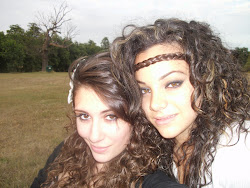Big Fat Gypsy Weddings is the television hit of the year. But is it going to harm the community it portrays?
Remember a few years back when Eastenders ran an advertising campaign with the strapline 'Everyone's talking about it'? At the time, everybody was, or so it seemed. These days, British viewers have turned their attentions elswhere and it seems like you just can't escape people talking about Channel 4's Big Fat Gypsy Weddings.
The five part series is drawing in over seven million viewers with each episode, making it one of the channel's most-watched shows ever. And people aren't just watching - they're discussing it on Twitter and setting up Facebook groups. Newspaper columnists are talking about it. I've heard people telling their friends that's it's the ultimate television highlight of their week.
So why the obsession? The series grew out of the 2010 documentary My Big Fat Gypsy Wedding, which focused on the weddings of three young women from traveller families. It was the sort of programme that gets described as 'car crash TV' and millions couldn't help but tune in for a glimpse inside the notoriously secretive traveller community, where marriages generally happen between teenagers and traditional gender roles are very strictly observed. With the return of the show as a series, viewers have kept going back for more - with mixed reactions.
Predictably, there's been a lot of snobbery, racism and ridicule. The gypsy and traveller communities are the subject of much prejudice, talk of 'pikeys' and 'gypos' and jokes about their culture are common.
In 21st century British culture, where plenty of people practically consider 'chav bashing' their right, it's easy to laugh atwedding dresses which weigh as much as a fully-grown man, six-year-olds getting spray tans and sixteen-year-old brides discussing the decor in their new caravans. And it's hardly going to change the way travellers are often treated by society.
Unsurpringly it's brought anger from travellers and the organisations which work with them, many of which feel the show nothing more than 'sensationalism' - an unfair and inaccurate portrayal of a culture which is marginalised enough in the first place. They have said that the unbelievably over-the-top weddings and apparently violent courtship practices are far from widespread and that only a small minority of travelling people live their lives this way. They're not happy with the way the tabloids have covered the series either.
The show's producers have reiterated that the people featured in the series have been happy with the way they have been portrayed, but the debate rages on.
A major area of concern for viewers has been the way traveller culture impacts the lives of women - even, it has to be said, people who aren't usually bothered by gender issues. Sexism may still be alive and well but to most, gender equality isn't a totally alien concept.
Watching these young women who have left school at 11 or 12, who are extremely restricted by gender roles and who freely admit that 'it's a man's world' has been really uncomfortable for a lot of people - just as much as seeing young men laugh at the idea of a woman having a job or saying that they think the custom of unmarried women not being allowed to drink alcohol or go out alone is completely 'fair'.
This is certainly heightened by the other facts we know about travelling communities. That the women within them are considered some of the most marginalised women in the country. That, according to the Equality and Human Rights Commission, up to 81% of them have experienced domestic abuse. When you add this to low life expectancy, alcohol and drug abuse on the rise, lack of access to support services, prejudice from the general public and the stigma of admitting to being abused, the picture doesn't look too rosy.
It certainly doesn't show those who are quick to mock travellers' lives in a particularly good light, even if it is 'just a laugh' as far as they're concerned. Their remarks about gypsies and travellers in general have shown that there's a lot of venom reserved for them, no matter what sort of lives they lead.
Agencies and organisations are working with travellers to support them and help combat prejudice, but I wonder whether Big Fat Gypsy Weddings is going to mean they're subject to even worse treatment from the public - and how much 'concern' will remain once the series is over.







No comments:
Post a Comment